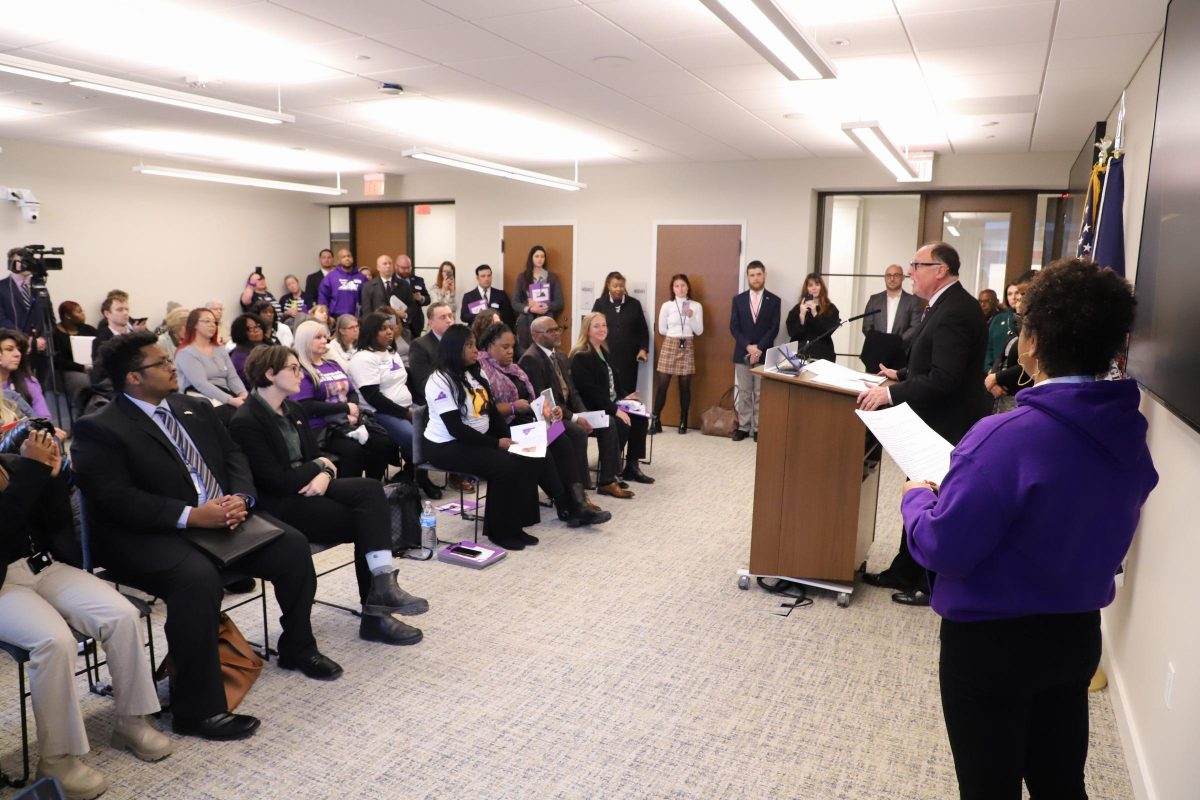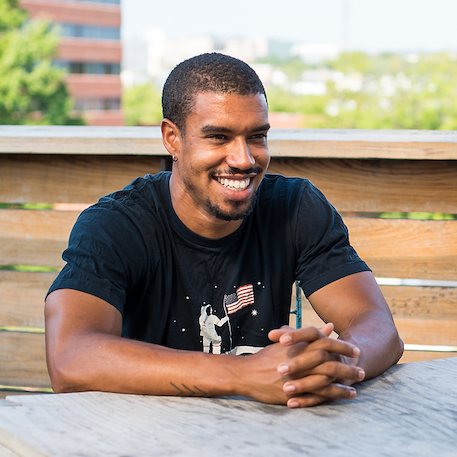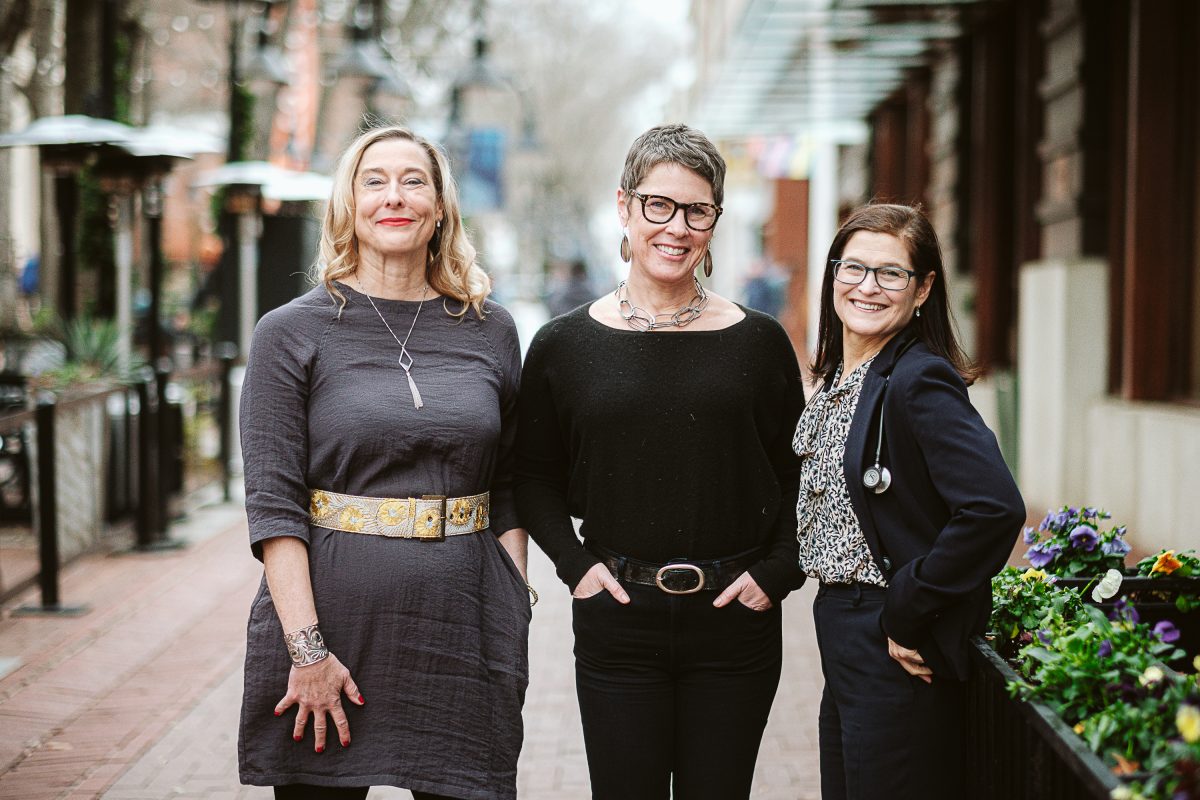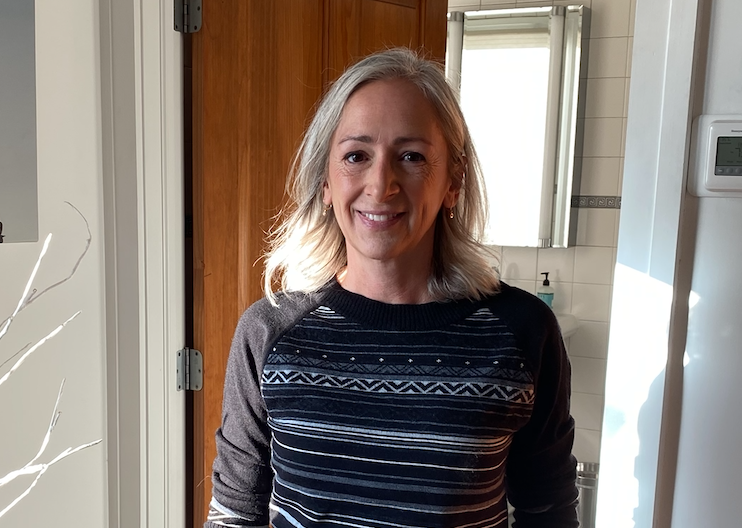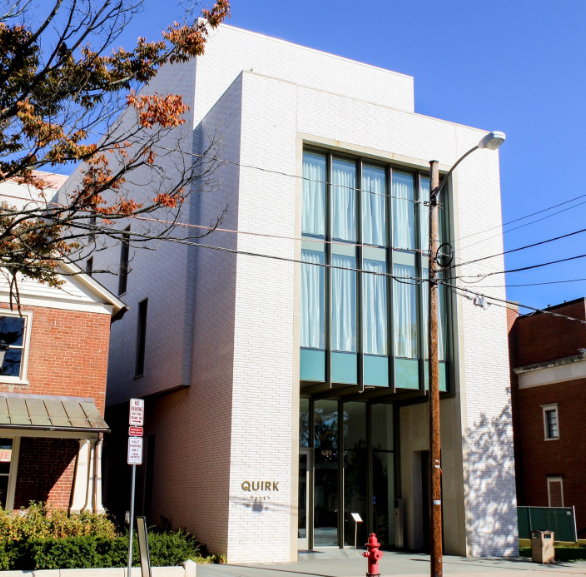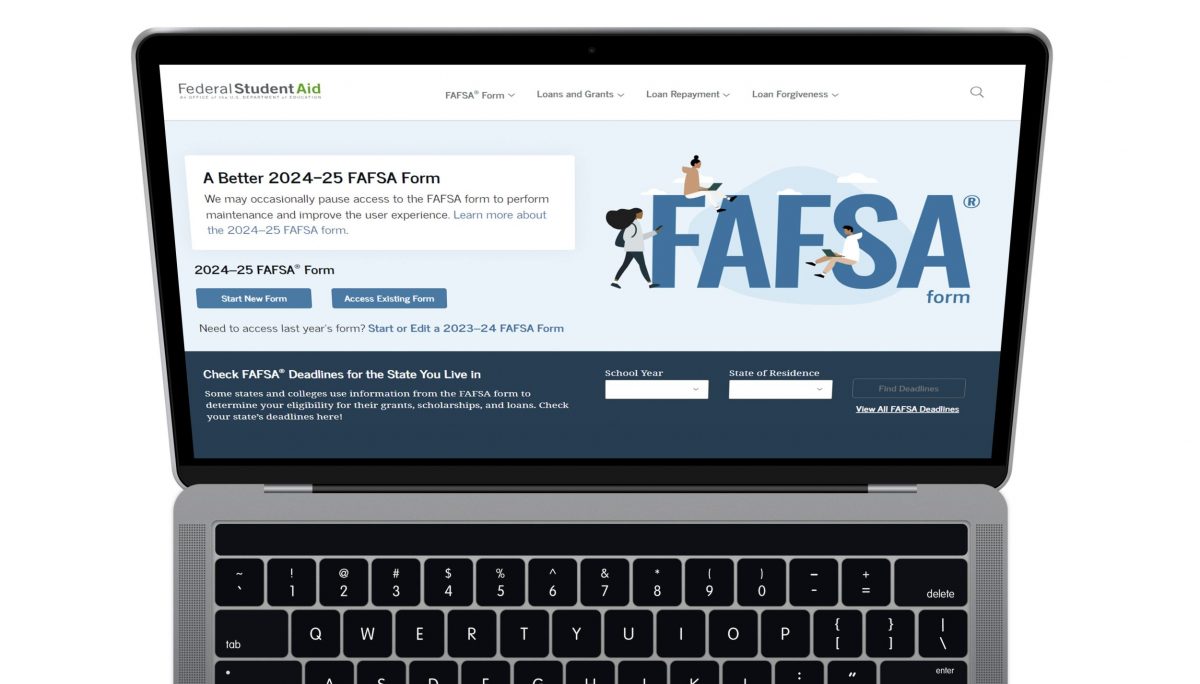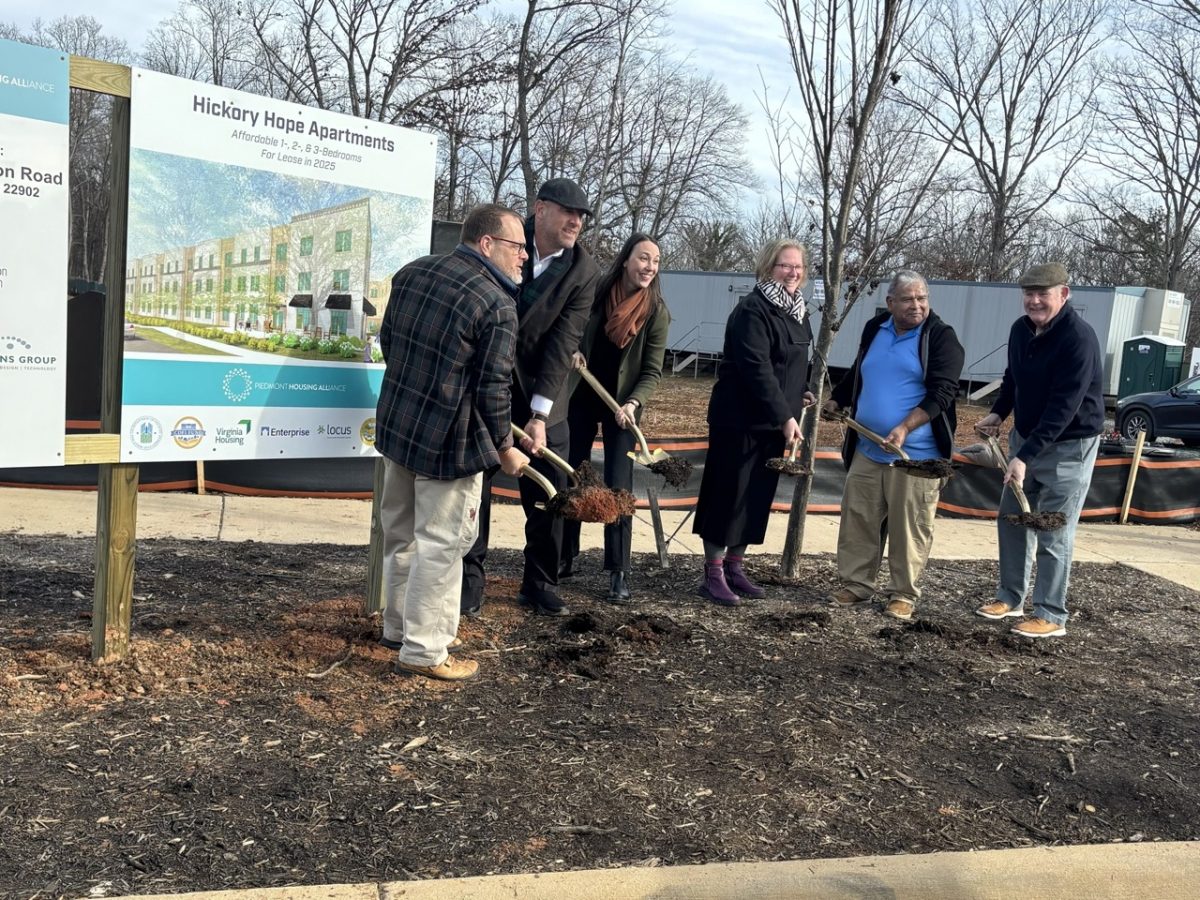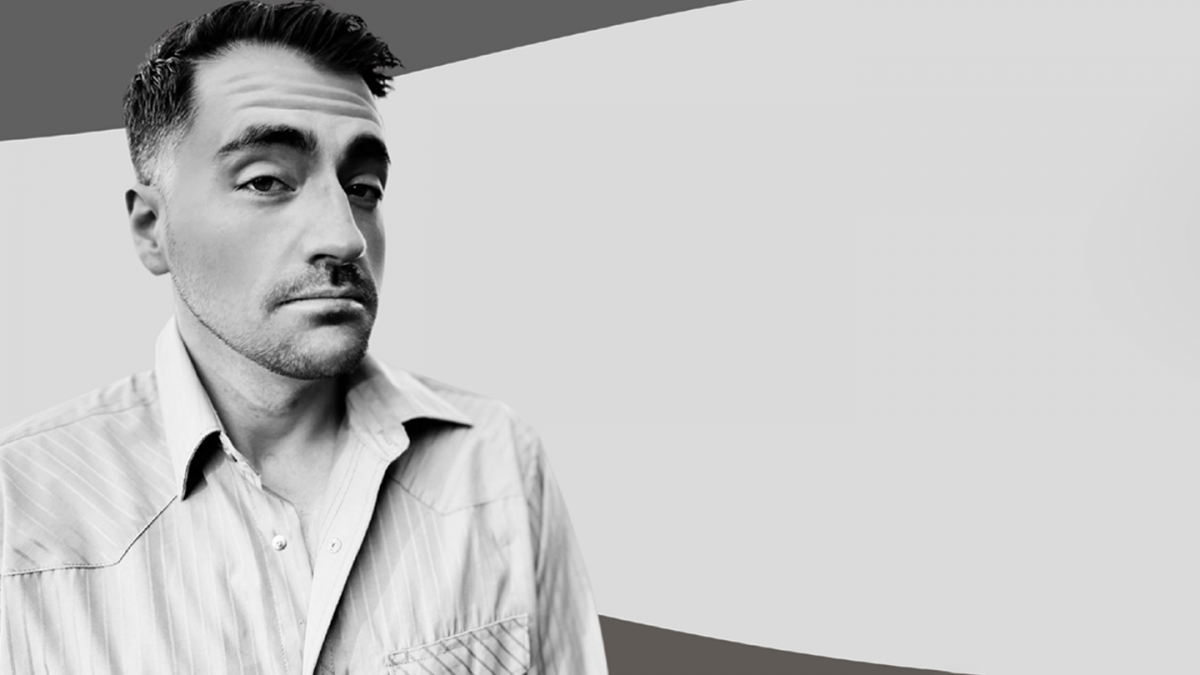Charlottesville is full of smarty-pants who love to work their brains at trivia night. And you’re guaranteed to find a gathering nearly every night of the week, like Random Row’s Sunday evening battle of wits, Alamo Drafthouse Cinema’s Thursday night get-together for “Jeopardy!” wannabes, and Starr Hill Downtown’s Wednesday evening extravaganza, where host Olivia Brown quizzes crowds. Brown’s trivia journey began at World of Beer, where she helped keep score. She’s been at Starr Hill since 2021, and, fun fact, recently launched her own company, Trivia with Olivia, through which she hosts public and private events, virtual trivia, and offers DIY trivia packs. triviawitholivia.com
Name: Olivia Brown.
Age: 30.
Pronouns: She/her.
Hometown: Centreville, Virginia.
Job(s): Tour Guide at Monticello by day, trivia host and owner of Trivia with Olivia by night.
What’s something about your job that people would be surprised to learn: That people playing bar trivia will fight to the death over the most minute details, so watch out and make sure you do your research before writing a set of questions.
Favorite trivia fact: Pierre, South Dakota, is the only state capital in the United States that doesn’t share any letters with its state’s name.
What’s your best trivia category: I’ve done so many trivia categories over the years, but a couple I’ve really enjoyed are “Are You Smarter Than a 5th Grader?” rounds, and quirky things like “Living or Extinct?” where teams had to guess whether the animal I gave them still exists or not.
What’s the key to choosing the best trivia team name: A good pun can go a long way! And while inappropriate team names are usually quite funny, there is a line where you make trivia hosts not want to say things on the microphone.
Best part of living here: Seeing the mountains on the most casual drives, like to the gym or the grocery store.
Worst part of living here: My rent.
Favorite local restaurant: The Local in Belmont. I have never had a bad experience—it’s always impeccable.
Favorite local place: My bed, but if I can’t pick that I’d have to go with Mint Springs Valley Park.
Bodo’s order: I have celiac so I go one of two routes: BYO bagel and order plain cream cheese and lox, or the Turkey Cleo Salad and potato salad on the side.
What’s your comfort food: My dad’s spaghetti bolognese. Cooks three to four hours, and I’ve been eating it for as long as I can remember.
How do you take your coffee: With a splash of French vanilla creamer, hot or iced.
Who is your hero: Elie Wiesel and Ruth Bader Ginsburg are among my biggest heroes. People who represent my Jewish identity and did everything in their power to fight for themselves and for others.
Best advice you ever got: Since I was a child, my mom has told me: “There are always options.”
Proudest accomplishment: Officially registering my trivia company as an LLC was an extremely proud moment for me. I’m not one for big leaps of faith, but I finally put all that trust in myself and decided to do it!
Describe a perfect day: Somehow convincing my body to sleep past 8am, getting brunch (preferably with a kick-ass bloody mary), a hike with a view (preferably of mountains), dinner with my favorite people (preferably with an array of Mexican food), and a hot bath before bed (preferably with a book).
If you could be reincarnated as a person or thing, what would you be: I think I’d like to be a millennial’s house plant. Just put me in a nice sunny spot, doted on day in and out, happily growing.
If you had three wishes, what would you wish for: First and foremost, that celiac could be cured and I could eat gluten again. Second, I’d wish my family and friends never wanted for anything and got everything that made them happy. Third, a house full of rescue puppies because coming up with a third wish is hard and this seems like something everyone can get on board with.
Most embarrassing moment: When I was a preteen, I wanted to use a round brush to blow-dry my hair, but I had no idea what I was doing. I tried to do it and ended up getting the brush fully stuck to the top of my head. We thought we were going to have to cut my hair off at 9pm on a school night. My older brother figured out how to solve it, but refused to tell my mom and me until I agreed to make him sandwiches whenever he wanted. He mentioned we could remove the bristles with pliers and then the round brush would slide out. It worked and I spent the next decade of my life making sandwiches for him (he’s now married, so I’m off the hook).
Do you have any pets: I don’t, but I love to dogsit so I can get my fair share of dog serotonin in.
Favorite movie and/or show: The original Lion King will forever be my favorite movie, with Lord of the Rings: Return of the King coming in second.
Favorite book: Reading is my favorite hobby so this is almost an impossible question. Since I read it as a kid though, To Kill a Mockingbird by Harper Lee has always been my answer.
What are you listening to right now: I just started The Office BFFs audiobook by Jenna Fischer and Angela Kinsey.
Go-to karaoke song: I am an unapologetic Nickelback fan, and will always sing “Photograph” (an American classic).
Best Halloween costume you’ve worn: Tweedle Dee and Tweedle Dum with one of my best friends.
Who’d play you in a movie: I have been told before that I remind people of Mila Kunis, so I would be blessed to have her be me in a movie.
Celebrity crush: Henry Cavill, the big, muscly nerd of my dreams.
Most used app on your phone: Instagram. I’m a sucker for the doom scroll sometimes.
Last text you sent: Asking my family to pick my most embarrassing moment that was appropriate to publish where other people could read it … they collectively said they had nothing that was both embarrassing and publishable, so were not of much help.
Most used emoji: Crying with laughter face.
Subject that causes you to rant: The state of health care in the United States.
Best journey you ever went on: For my 30th birthday, I went with a few of my best friends out to Utah and we went to three national parks in five days and it was a deeply soul-invigorating trip to bring me into my third decade of life.
Next journey: While I’ve made it a goal of mine to visit all of the national parks, my next planned trip is to Mexico at the end of January. Need a few days away from the winter.
Favorite curse word: I try not to sometimes, but I curse like a sailor and the F-word is my most common expletive.
Hottest take: Hot dogs are sandwiches. Fight me.
What have you forgotten today: To take my reusable grocery bags out of the car.

